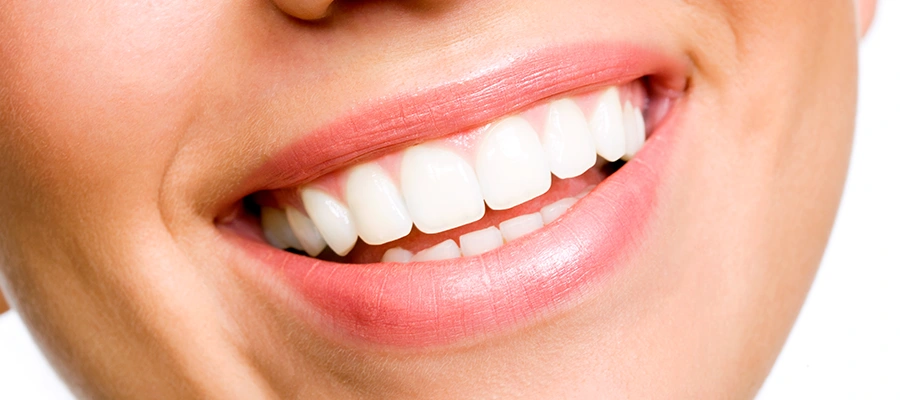
What is Bleaching Treatment?
Bleaching is a process that lightens the colors of teeth that have undergone discoloration using chemical substances. The purpose of this process is to lighten the color of the stains present on the teeth and to make the tooth color whiter. In this way, patients can achieve the appearance they want.
Causes of Stains and Color Change on Teeth
Excessive consumption of tea, coffee and alcohol products can turn the teeth yellow or brown. Consumption of tobacco products can lead to darkening of the teeth. With aging, the abrasions that occur in the tooth enamel cause the inner part of the tooth to appear and take on a yellow color. In such cases, these problems can be eliminated with the laser teeth whitening method.
In Which Situations Can Bleaching Be Applied?
In the removal of pathological or age-related discoloration of the teeth and in the presence of a tooth color that is not liked by the patient, whitening can be performed. As mentioned before, this whitening treatment can be easily applied to prevent yellowing caused by eating habits.
What are the Bleaching Methods?
As we mentioned before, there are five teeth bleaching methods. While these methods can be done at home with some mixtures, they are also performed by specialist physicians in clinics. Of course, the most effective method is the bleaching procedures performed in clinics.
How is Bleaching done?
There are some stages of the laser teeth whitening process. Before the procedure, tartar is cleaned, the stains on your teeth are cleaned with the polishing method. After all soft tissues are isolated with a light-curing barrier, the whitening gel is applied to the teeth and activated by light.
How Long Does the Bleaching Process Take?
Whitening processes usually take an hour or an hour and a half. These events are for one session. Your dentists, giving their professional opinion, insist that teeth whitening be done slowly, carefully and meticulously.
What Should Be Considered After Bleaching?
There are some factors that should be considered after teeth whitening services procedures. Before this, if pain is felt from the first day, heavy medication can be taken. Extremely cold or hot foods and drinks should be avoided for the first few days. Coloring products such as cigarettes, tea, coffee or red wine should be used a few days after the end of the process.
Is Bleaching Harmful to Teeth?
The whitening process applied with the correct procedure under the control of the dentist does not cause any harm to the teeth. Teeth whitening does not cause any structural changes or permanent damage to the teeth. The application is the bleaching of the liquid in the small enamel particles directly in the tooth enamel. However, some methods tried at home can damage the teeth. So if you want to whiten teeth, it is best to go to clinics.
Advantages and Disadvantages of Bleaching
Teeth whitening has many advantages. It is the right of every person to have a white smile. In addition, teeth whitening does not harm the teeth. The whitening process, which is applied under the control of the dentist and with the right procedures, has no harm to the teeth. Teeth whitening does not cause permanent damage to the teeth or any structural changes.
There are some factors that should be considered after teeth whitening services procedures. Before this, if pain is felt from the first day, heavy medication can be taken. Extremely cold or hot foods and drinks should be avoided for the first few days. Coloring products such as cigarettes, tea, coffee or red wine should be used a few days after the end of the process.
Whitening processes usually take an hour or an hour and a half. These events are for one session. Your dentists, giving their professional opinion, insist that teeth whitening be done slowly, carefully and meticulously.
